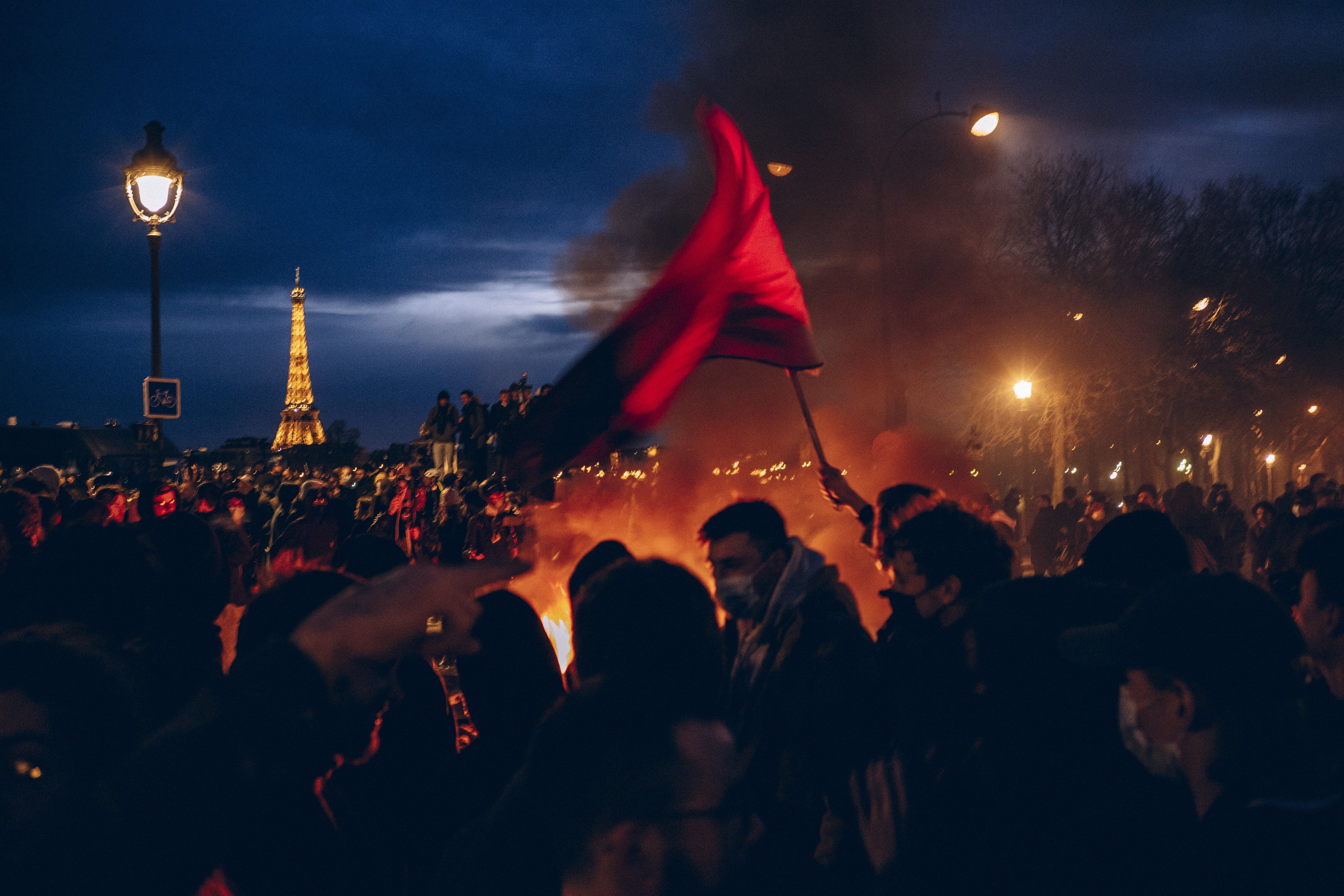Macron bypasses the legislature on pension reform
French President Emmanuel Macron on Thursday made the risky call to bypass the National Assembly, France’s powerful lower house, and push through a very unpopular pension reform scheme.
As expected, protesters responded with anger. More than 300 people were arrested overnight, and on Friday morning demonstrators halted production at a fuel refinery and briefly blocked traffic on a highway outside Paris.
(A brief recap on the proposal that’s sent France into a tailspin: Macron’s government wants to incrementally raise the national retirement age by two years to 64 by 2030. Starting from 2027, workers will need to have worked for 43 years, up from 41, to access a full pension.)
Why’s he doing this? Macron has long said that France's public spending, 14% of which goes toward its pension scheme – the highest of any OECD country after Greece and Italy – is crucial to addressing its growing debt-to-GDP ratio. But this approach is very unpopular in France, where retirement is sacred and government interference is abhorred.
Fearing he wouldn’t have the votes in the lower chamber, Macron triggered a constitutional loophole to get the bill through (it had already passed in the upper chamber). But by taking this route – which his political opponents say renders the bill illegitimate, though it is legal – Macron now opens himself up to serious political blowback.
On Friday, a group of opposition centrist lawmakers — backed by the far-left NUPES coalition — filed a no-confidence vote against the government, while far-right leader Marine Le Pen announced she'll table her own. But any vote would need to pass by an absolute majority to topple the government – meaning PM Élisabeth Borne and the cabinet, not the president. Still, that’s very unlikely to happen, analysts say.
But Macron, who cannot run again after 2027 due to term limits, is not out of the woods. Unions have vowed to make the government pay, and prolonged strikes are expected. Meanwhile, far-left and far-right factions say they’ll intensify efforts to topple the French government.
Bibi rejects judicial compromise. What now?
It’s been another dramatic 24 hours in Israel as the country moves closer toward a constitutional crisis over judicial reform. President Isaac Herzog, whose role is largely ceremonial, came out with a compromise proposal to placate both the government — pushing to limit the power of the courts — and opposition factions that dub the move a judicial coup. Crucially, Herzog warned that the prospect of “civil war” looms large.
Five (out of six) opposition party leaders now say they support Herzog’s proposal, which they can live with despite not being perfect. But Prime Minister Benjamin “Bibi” Netanyahu, who’s increasingly powerless as he tries to appease a discordant far-right coalition, rejected the pitch, calling it “one-sided.”
Meanwhile, anti-government protests continued to sweep Tel Aviv and elsewhere, and scores of army reservists said that they will not show up for training in protest.
As the government moves ahead with its plans, the future looks more and more uncertain. What’ll happen if the Knesset, Israel’s parliament, passes a law which then gets struck down by the Supreme Court? Would citizens — and the military — obey the legislature or the courts? When asked what to expect, Tzipi Livni, a former Israeli justice and foreign minister, said: "Anarchy.”
Polish fighter jets for Ukraine
Ukraine finally got its wish — sort of. On Thursday, Poland announced that it’ll supply Kyiv with MiG-29 fighter jets, the first NATO member to do so. That sounds like a big deal, right? Yes and no.
For months, Ukraine's President Volodymyr Zelensky has been begging the US and its European friends for warplanes to fight Russia. But NATO allies have been slow-walking him because that might push the Russians to escalate on the battlefield. Yet, the Soviet-era MiGs — of which Ukraine has a few dozen relics — are hardly the modern warplanes Zelensky wants, and they’re no match for Russia’s Su-27s.
Still, perhaps Poland's gambit will encourage other NATO countries to follow suit — and maybe even force a rethink on sending Ukraine more high-tech warplanes in the future. After all, that's exactly what happened weeks ago with heavy tanks until the US and Germany
changed their mind.
